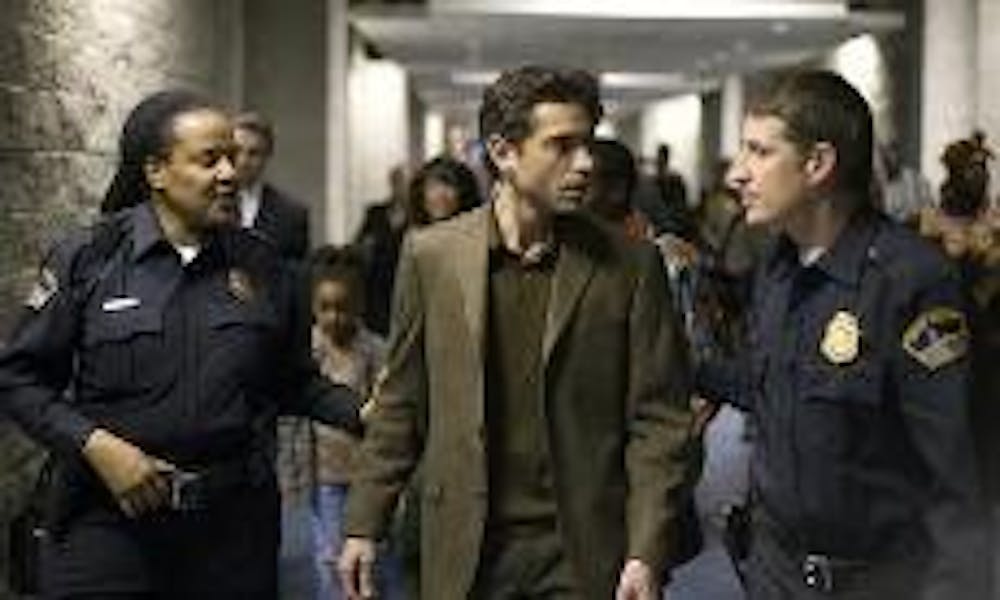"Rendition," a brooding and somber film, effectively portrays the delicate balance between emphasizing national security and preserving civil liberties. Conforming to the new breed of political thrillers like "Syriana," it uses innovative plot development and gritty realism to impart political commentary.
The film begins when a stunningly realistic suicide bombing obliterates a crowded Middle Eastern market. The main target of the assassination attempt is a high-ranking Middle Eastern government official named Abasi Fawal (Igal Naor), who manages to narrowly escape due to unforeseen circumstances, revealed only at the conclusion of the movie.
In the hours following the attack, the CIA acquires intelligence suggesting that an Egyptian-American engineer, Anwar El-Ibrahimi (Omar Metwally) has had phone conversations with the leader of the terrorist organization responsible for the attacks. The information passes up the ladder to a top CIA official, Corrine Whitman, played brilliantly by Meryl Streep. Whitman then OKs an executive rendition, which authorizes the detainment of U.S. citizens in secret, overseas prisons for the purpose of obtaining information on possible terrorist networks and suspects.
The call for a rendition, which does not occur until 20 minutes into the film, is the cohesive element that allows the story to alternate between different characters and countries. It weaves the lives of Anwar's wife, Isabella (Reese Witherspoon); Douglas Freeman (Jake Gyllenhaal), the CIA operative monitoring the torture-interrogation; Fawal; and his daughter Fatima, who has unknowingly become involved with a young man who is secretly hunting her father.
The cinematic alternation between the intensity of the Middle East and the perceived serenity of our nation's capital creates a tangible and symbolic juxtaposition between the welfare of El-Ibrahimi and the protection of our nation's most precious institutions. There are ample torture scenes that try to emphasize that point, but these segments do not have the lasting value as two more subtle scenes.
The first is when the existence of executive renditions is explained to Witherspoon's character, Isabella. After her realization that something is seriously wrong, she quickly enlists the help of Alan Smith (Peter Sarsgaard), her former college lover who is now a senatorial staffer. Smith soon recognizes that El-Ibrahimi has been the victim of an executive rendition, and during a conversational walk around the Tidal Basin in Washington, he informs her of the secret government practice with the Jefferson Memorial looming in the background, partially faded out by the morning fog.
The other scene is far more obvious and cinematically riveting. Smith finally confronts Whitman about El-Ibrahimi. The conversation starts off civilly enough, with the camera staring over Smith's right shoulder. But when Whitman attempts to brush Smith's inquiry off by presumptuously walking away, the camera pans and rotates over Smith's head and comes to rest over his left shoulder. The effect is brilliant because it shows the escalation of the conversation into a full-blown confrontation. During this second stage, Smith cites the Constitution in defense of El-Ibrahimi, but Whitman, who is "proud to be the person doing this job," gets the last word by referencing the 9/11 Report as justification for her actions. Streep shines in this moment as Whitman, seamlessly combining her own character from "The Devil Wears Prada" and Jack Nicholson from "A Few Good Men" in a display of supreme power and intimidation.
More importantly, these two standout scenes focus the film's indictment of government practice in relation to civil liberties. It begs the question: Is this the government that the founding fathers had envisioned? Could they have believed in a government that, during crisis, becomes wary of the individual, allowing a congressional conclusion like the 9/11 Report to trump the Constitution?
Whatever the case may be, the senseless torture and abuse of covert authority in "Rendition" suggests that the founders and the audience should not be pleased. For these reasons, the intellectual value of the film will weigh upon the audience long after the credits come to a close. The film opens nationwide tomorrow.





